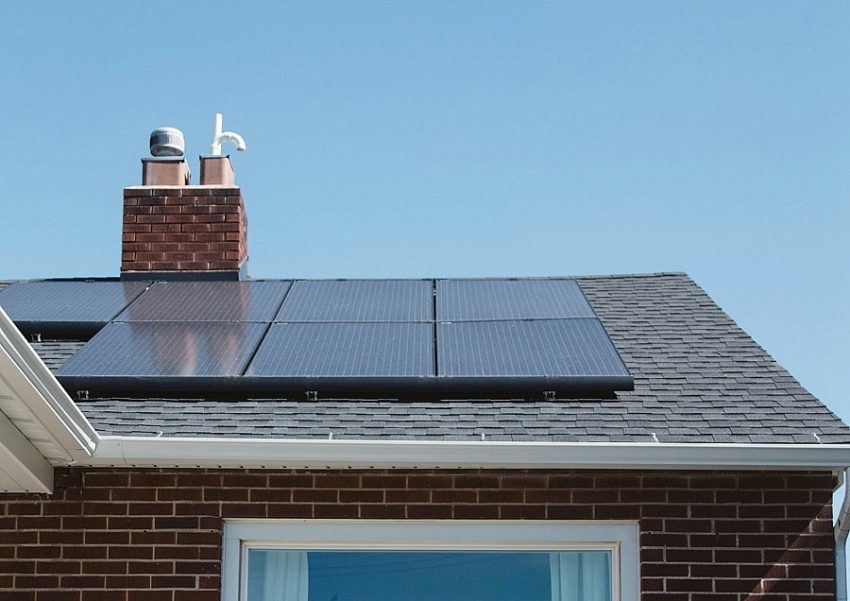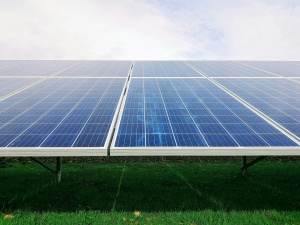Excess rooftop solar power sales capped at 10 per cent of capacity
In the latest draft presented in June regarding self-produced and self-consumed rooftop solar power, the MoIT maintained that this type of energy should be produced solely for on-site consumption, not to be sold to other organisations or individuals, nor fed into the national grid. Off-grid rooftop solar power development will not be limited, but on-grid systems must not exceed the capacity allocated in the Power Development Plan VIII (PDP8) (2,600MW).
 |
To promote clean energy sources, DPM Ha instructed the MoIT to pilot a scheme allowing the sale of unused excess power to the national grid. However, the excess sold must not exceed 10 per cent of total capacity.
The Ministry of Finance and the MoIT have been tasked with formulating pricing regulations based on the principle of "harmonised benefits and shared risks". State-owned utility EVN will be responsible for purchasing the excess electricity, ensuring system safety.
Ha also emphasised the urgency of these tasks, instructing the MoIT to present the proposal by July 11, so it can be issued by July 12.
Currently, there are approximately 103,000 rooftop solar projects nationwide, with a total capacity exceeding 9,500MW. According to the PDP8, the scale of this source is expected to increase by an additional 2,600MW by 2030, or achieve coverage of 50 per cent of government and residential buildings.
The MoIT noted that the policy does not favour the trading of solar power due to its instability and complete dependence on weather conditions. Moreover, to purchase surplus power, the state would incur significant costs in storage and transmission system investments, as well as operational and maintenance expenses.
The ministry said that the government encourages the installation of self-produced and self-consumed rooftop solar systems to reduce financial burdens, not for commercial purposes with preferential treatment as before. Allowing organisations and individuals to feed excess power into the grid should be considered a privilege, according to the MoIT.
However, many experts have suggested permitting households with rooftop solar installations to sell excess power to the grid, with a regulated limit on surplus to prevent policy exploitation, especially in industrial zones.
Alongside the pilot scheme for trading solar power, Ha also instructed the MoIT and other relevant bodies to design policies to prevent corruption, negative practices, and resource wastage.
 | Vietnam authorises DPPA for rooftop solar and biomass projects A recently issued government decree permits rooftop solar, waste-to-energy, and biomass projects to engage in direct power purchase agreements (DPPA) without routing through Vietnam Electricity (EVN). |
What the stars mean:
★ Poor ★ ★ Promising ★★★ Good ★★★★ Very good ★★★★★ Exceptional
Related Contents
Latest News
More News
- Trung Nam-Sideros River consortium wins bid for LNG venture (January 30, 2026 | 11:16)
- Vietnam moves towards market-based fuel management with E10 rollout (January 30, 2026 | 11:10)
- Envision Energy, REE Group partner on 128MW wind projects (January 30, 2026 | 10:58)
- Vingroup consults on carbon credits for electric vehicle charging network (January 28, 2026 | 11:04)
- Bac Ai Pumped Storage Hydropower Plant to enter peak construction phase (January 27, 2026 | 08:00)
- ASEAN could scale up sustainable aviation fuel by 2050 (January 24, 2026 | 10:19)
- 64,000 hectares of sea allocated for offshore wind surveys (January 22, 2026 | 20:23)
- EVN secures financing for Quang Trach II LNG power plant (January 17, 2026 | 15:55)
- PC1 teams up with DENZAI on regional wind projects (January 16, 2026 | 21:18)
- Innovation and ESG practices drive green transition in the digital era (January 16, 2026 | 16:51)

 Tag:
Tag:



















 Mobile Version
Mobile Version